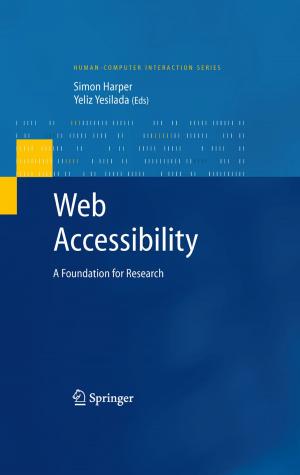User-Centred Requirements Engineering
Nonfiction, Computers, Advanced Computing, Computer Science, Programming, Software Development, General Computing| Author: | Alistair Sutcliffe | ISBN: | 9781447102175 |
| Publisher: | Springer London | Publication: | December 6, 2012 |
| Imprint: | Springer | Language: | English |
| Author: | Alistair Sutcliffe |
| ISBN: | 9781447102175 |
| Publisher: | Springer London |
| Publication: | December 6, 2012 |
| Imprint: | Springer |
| Language: | English |
If you have picked up this book and are browsing the Preface, you may well be asking yourself"What makes this book different from the large number I can find on amazon. com?". Well, the answer is a blend of the academic and the practical, and views of the subject you won't get from anybody else: how psychology and linguistics influence the field of requirements engineering (RE). The title might seem to be a bit of a conundrum; after all, surely requirements come from people so all requirements should be user-centred. Sadly, that is not always so; many system disasters have been caused simply because requirements engineering was not user-centred or, worse still, was not practised at all. So this book is about putting the people back into com puting, although not simply from the HCI (human-computer interaction) sense; instead, the focus is on how to understand what people want and then build appropriate computer systems.
If you have picked up this book and are browsing the Preface, you may well be asking yourself"What makes this book different from the large number I can find on amazon. com?". Well, the answer is a blend of the academic and the practical, and views of the subject you won't get from anybody else: how psychology and linguistics influence the field of requirements engineering (RE). The title might seem to be a bit of a conundrum; after all, surely requirements come from people so all requirements should be user-centred. Sadly, that is not always so; many system disasters have been caused simply because requirements engineering was not user-centred or, worse still, was not practised at all. So this book is about putting the people back into com puting, although not simply from the HCI (human-computer interaction) sense; instead, the focus is on how to understand what people want and then build appropriate computer systems.















